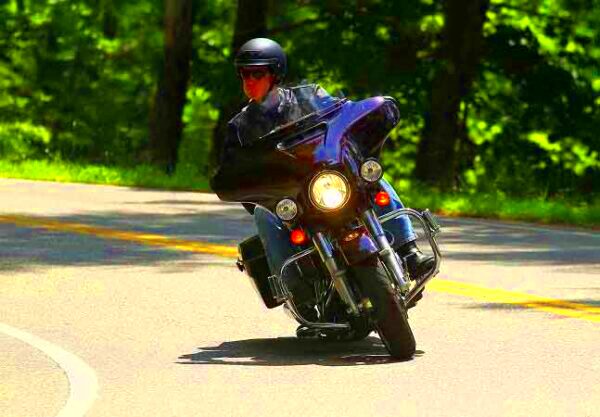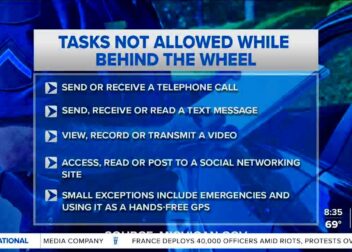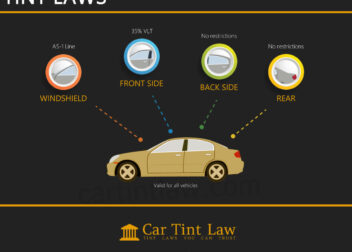Understanding Maine Motorcycle Laws
Maine is famous for its picturesque landscapes and lively fall foliage making it an ideal spot for bikers. However before you rev up your engine it’s essential to familiarize yourself with the motorcycle laws in the area to ensure a ride and steer clear of any legal issues. The motorcycle rules in Maine are put in place to protect riders and promote responsible sharing of the road among all motorists.
The regulations address aspects such as licensing prerequisites, safety equipment and insurance. For example in Maine it is mandatory for all motorcycle riders to hold a valid license and to wear specific safety gear for legal riding. Moreover there are guidelines regarding motorcycle operation and insurance that may differ depending on the motorcycle type and the riders level of experience.
Grasping these rules not only ensures adherence but also boosts your security and those around you while driving. Personally I found that brushing up on these regulations before embarking on my trips spared me from possible penalties and added an extra layer of enjoyment to my travels. It’s a worthwhile time commitment that reaps rewards by keeping you both protected and within the boundaries of the law.
Requirements for Motorcycle Licensing in Maine

In order to ride a motorcycle in Maine you need to get the right license. Maine has a system in place to make sure that every rider has the skills and know how to ride a motorcycle safely.
To start off you need to get a motorcycle learner’s permit. This means passing a test that focuses on the fundamental rules of riding a motorcycle and ensuring safety. After obtaining your permit it’s important to complete a riding course. This is strongly advised and frequently mandatory for new riders. In Maine you can take the Basic Rider Course (BRC) offered by different providers. This course covers skills and includes hands on riding practice.
Once you finish the course, you can set up a road test to showcase your riding abilities. If you pass the test, you’ll get a motorcycle endorsement on your drivers license, which will let you ride legally in Maine.
Having experienced this journey firsthand I can vouch for the effectiveness of the training. It’s not merely about obtaining a license; it’s about acquiring the skills to ride with safety and assurance. The insights gained from the program have proven essential in steering clear of pitfalls and navigating challenging riding situations.
Helmet Laws and Safety Gear in Maine
In Maine putting on a helmet is not merely a wise decision; it’s also mandated by law. The helmet regulations in the state aim to safeguard riders against head injuries during accidents. Maine mandates that both motorcycle riders and their passengers don helmets that comply with the Department of Transportation (DOT) specifications.
In addition to wearing helmets, Maine law requires riders to wear eye protection when their motorcycle lacks a windshield. This can involve using goggles or face shields to shield against debris and wind. To improve safety it is advisable to wear gloves, jackets and pants crafted from materials that resist abrasions.
In the early days of my biking journey I didn’t fully grasp the significance of wearing gear. However a minor incident on a gravel road opened my eyes to the importance of having top notch protective clothing. The impact of a helmet can be substantial when it comes to preventing injuries during a fall. It’s definitely wise to invest in gear to prioritize your safety while riding.
Motorcycle Insurance Requirements in Maine
In Maine having motorcycle insurance isn’t merely a suggestion it’s a requirement. Getting the insurance safeguards you against potential costs that may come up due to accidents or damages. According to Maines regulations all riders must carry liability insurance. This type of coverage takes care of injuries and damages caused to others if you are responsible for an accident.
In Maine here are the essential insurance coverage mandates for motorcycles.
- Bodily Injury Liability: Minimum coverage of $50,000 per person and $100,000 per accident. This helps cover medical expenses for injuries you cause to others.
- Property Damage Liability: Minimum coverage of $25,000. This covers damages to property, such as vehicles or structures, if you’re at fault.
Moreover even though Maine doesn’t mandate uninsured motorist coverage opting for it is a smart decision. This form of insurance assists in covering your costs in case you’re involved in an accident with a driver who has insufficient insurance.
In my personal experience having coverage has proven to be a real lifesaver. I remember an incident where a small accident resulted in unexpected repair expenses. Fortunately my insurance took care of the majority of the costs alleviating the burden. Its always wise to be ready and safeguarded even if you never find yourself needing to rely on your insurance.
Motorcycle Operation and Traffic Laws in Maine
When cruising on a motorcycle in Maine it’s important to follow certain traffic regulations that prioritize the safety of all road users. The state’s motorcycle riding laws aim to minimize accidents and encourage responsible riding behavior.
Important elements of riding a motorcycle and the rules of the road in Maine include.
- Speed Limits: Motorcyclists must follow the same speed limits as other vehicles. Exceeding the speed limit can lead to fines and penalties.
- Lane Usage: Motorcycles must ride in a single lane and are not allowed to share lanes with other vehicles. Lane splitting, or riding between lanes of slow-moving traffic, is not permitted.
- Turning and Signaling: Riders must signal their intentions to turn or stop. This is crucial for avoiding misunderstandings with other drivers.
A standout moment in my life was when I had a miscommunication with a driver because I forgot to indicate my turn. That close call served as a wake up call about the importance of signaling for safety. Adhering to these traffic regulations not only helps you steer clear of penalties but also plays a role in making the roads safer for all.
Understanding Lane Splitting and Filtering Laws
Lane splitting, which involves riding between lanes of cars can be a topic of debate and in Maine it’s crucial to understand the states stance on this matter. According to Maine law lane splitting is not allowed meaning that motorcyclists are required to remain in their assigned lane, even when traffic is moving slowly.
Maine has a position on lane splitting and filtering that can be summarized as follows
- Lane Splitting: Not allowed. Riders must not maneuver between lanes of stopped or slow-moving traffic.
- Filtering: Also prohibited. This involves moving past stationary vehicles at traffic lights, which is not permitted in Maine.
Back when I was starting out on my bike I thought about splitting lanes in a traffic jam. But being aware that it’s against the law in Maine and recognizing the risks involved made me opt for safer decisions. Following the rules not keeps you on the side of the law but also lowers the likelihood of accidents and disputes with other drivers.
What to Know About Motorcycle Inspections
Getting your motorcycle inspected in Maine is crucial to make sure your ride is safe and ready for the road. Routine checks can spot potential problems before they escalate into issues helping to keep you and everyone else on the road safer.
Here are the key takeaways regarding motorcycle inspections in Maine.
- Inspection Frequency: Maine requires motorcycles to undergo an annual safety inspection. This helps to ensure that all safety features are functioning correctly and that the bike meets state safety standards.
- Inspection Stations: You can get your motorcycle inspected at licensed inspection stations throughout the state. Many service stations and motorcycle repair shops offer inspection services.
- What’s Checked: During an inspection, several key components of your motorcycle are evaluated, including the brakes, lights, tires, and overall condition of the bike. Inspectors will also check that your horn, mirrors, and exhaust system comply with state regulations.
I recall my initial experience taking my motorcycle for an inspection. Feeling somewhat nervous I found the procedure to be simple and quite informative. The inspector brought up a couple of minor concerns that I had missed that could have caused issues down the line if left unattended. Now I make it a habit to get my motorcycle inspected regularly for maintenance purposes. It brings me reassurance and guarantees that my bike is always in excellent condition.
Handling Motorcycle Accidents and Legal Recourse
Motorcycle crashes can be a mix of shock and chaos, both in terms of injuries and legal matters. Understanding how to navigate the situation after an incident occurs can greatly influence your healing process and your legal position.
Here’s what you need to know:
- Immediate Steps: After an accident, your first priority should be to seek medical attention. Even if you feel fine, it’s crucial to get checked out. Contact the police to file a report, as this document will be essential for any legal claims.
- Gather Evidence: Collect as much information as possible from the scene. This includes taking photos, noting the details of the accident, and getting contact information from witnesses. This evidence will support your case if you need to pursue legal action.
- Contact Your Insurance: Notify your insurance company about the accident. They will guide you through the claims process and help you understand your coverage. Having comprehensive and collision coverage can be particularly beneficial in these situations.
- Seek Legal Advice: Consult with a personal injury lawyer who specializes in motorcycle accidents. They can help you navigate the legal complexities, negotiate with insurance companies, and ensure that you receive fair compensation for your injuries and damages.
Based on my own experience I realized that having a lawyer can greatly impact how an accident claim is managed. The legal journey can be intimidating but having a well versed ally by your side helps alleviate the pressure and guarantees that you receive the necessary assistance.
FAQ About Maine Motorcycle Laws
Navigating the intricacies of motorcycle laws can be a challenge. To help address common queries here are some frequently asked questions that may shed light on concerns.
- Do I need to wear a helmet while riding in Maine? Yes, Maine law requires all motorcycle operators and passengers to wear a DOT-approved helmet.
- Is lane splitting allowed in Maine? No, lane splitting is not permitted in Maine. Motorcycles must remain in their lane, even in slow-moving traffic.
- How often do I need to get my motorcycle inspected? Motorcycles must undergo an annual safety inspection in Maine.
- What insurance coverage is required for motorcycles in Maine? Maine requires minimum liability coverage, including $50,000 for bodily injury per person, $100,000 per accident, and $25,000 for property damage.
- What should I do if I’m involved in a motorcycle accident? Seek medical attention, file a police report, gather evidence from the scene, notify your insurance company, and consult with a personal injury lawyer if needed.
Having dealt with these challenges personally I can vouch for the significance of grasping and adhering to these rules. They play a role not, in maintaining compliance but also in making sure you are ready to handle any potential legal or safety issues that may arise.
Conclusion
Cruising through Maine on a bike can be an adventure thanks to the stunning scenery and refreshing breeze that enhance every ride. However it’s essential to familiarize yourself with and follow the states motorcycle regulations to ensure a journey. This includes having the insurance coverage and complying with safety gear mandates as every detail contributes, to your overall riding experience.
Having gone through these laws firsthand I can assure you that staying informed and ready can truly make a difference. There have been instances where being familiar with the intricacies of motorcycle rules spared me from unnecessary hassle and empowered me to handle situations with assurance. Keep in mind that whether it’s about motorcycle checks managing incidents or just grasping traffic regulations having some knowledge can significantly enhance both the enjoyment and safety of your rides.


